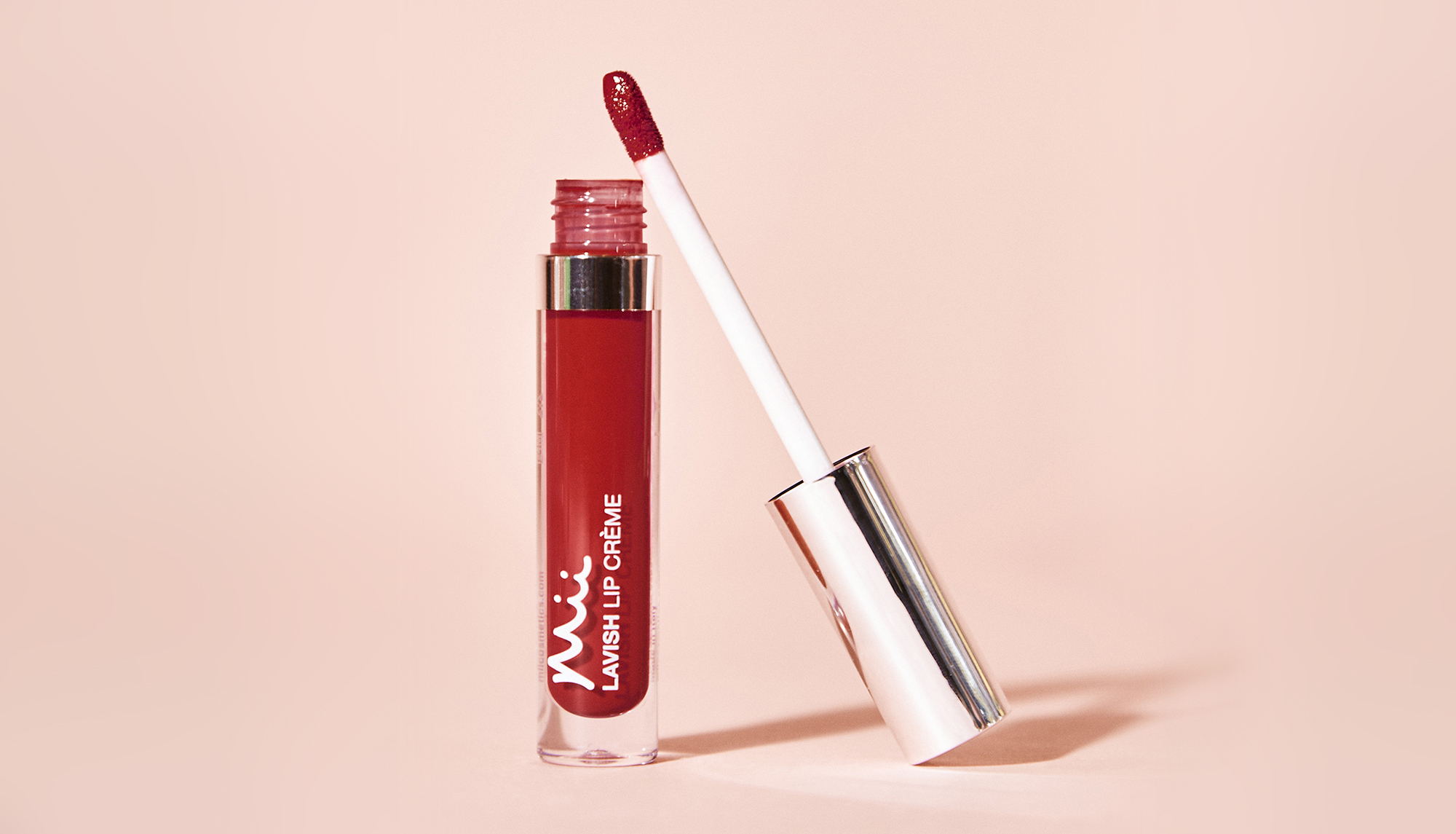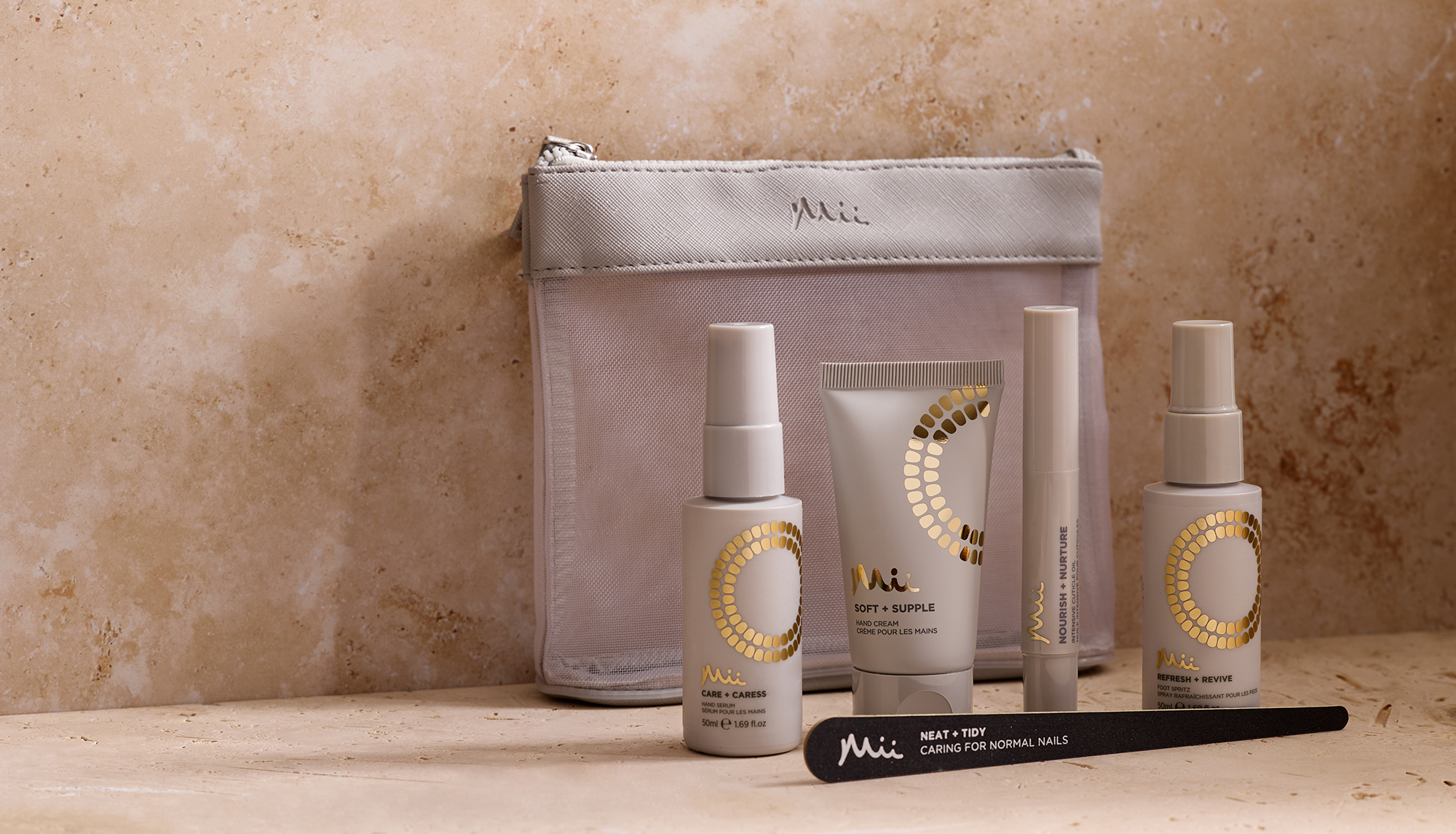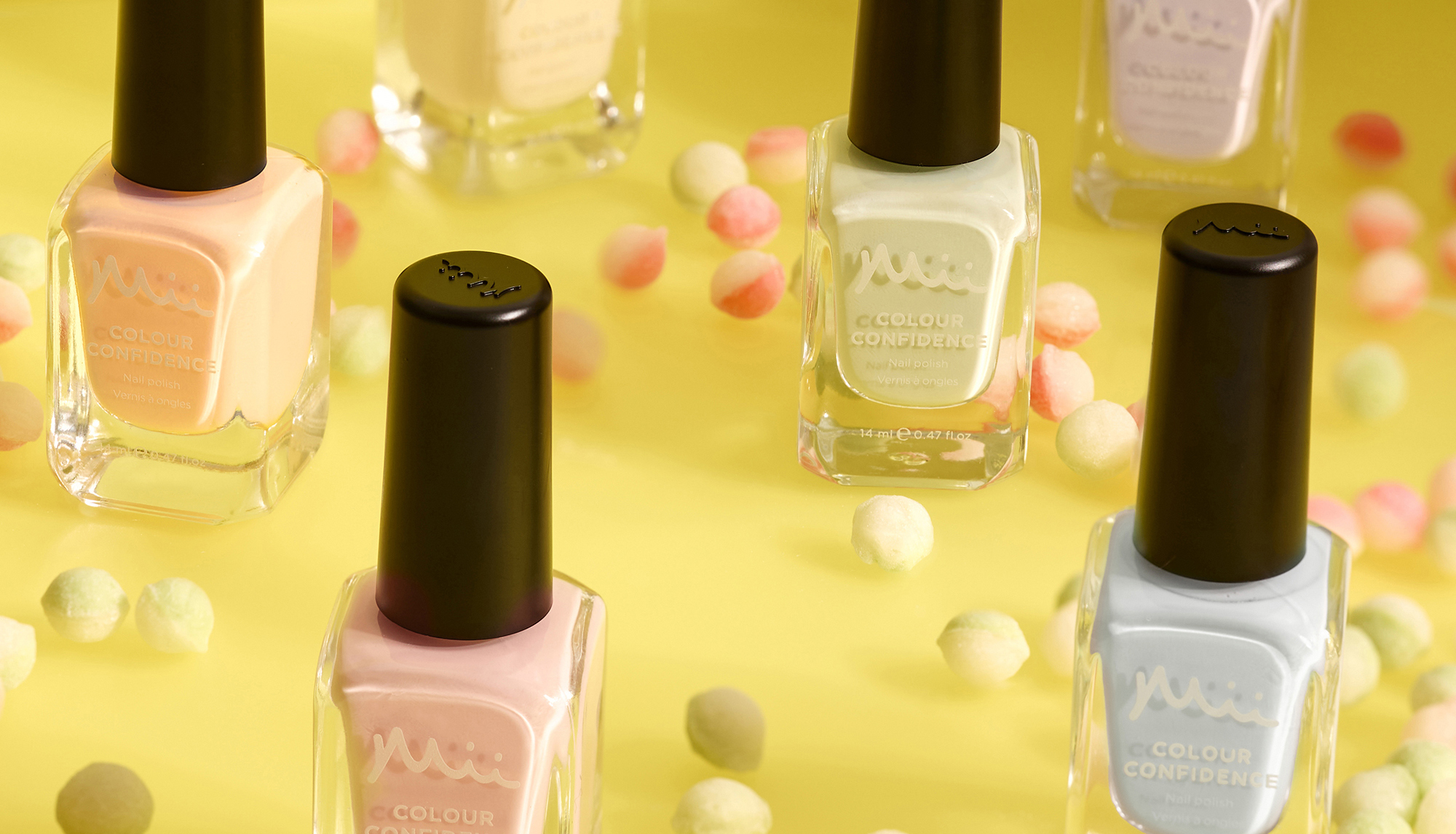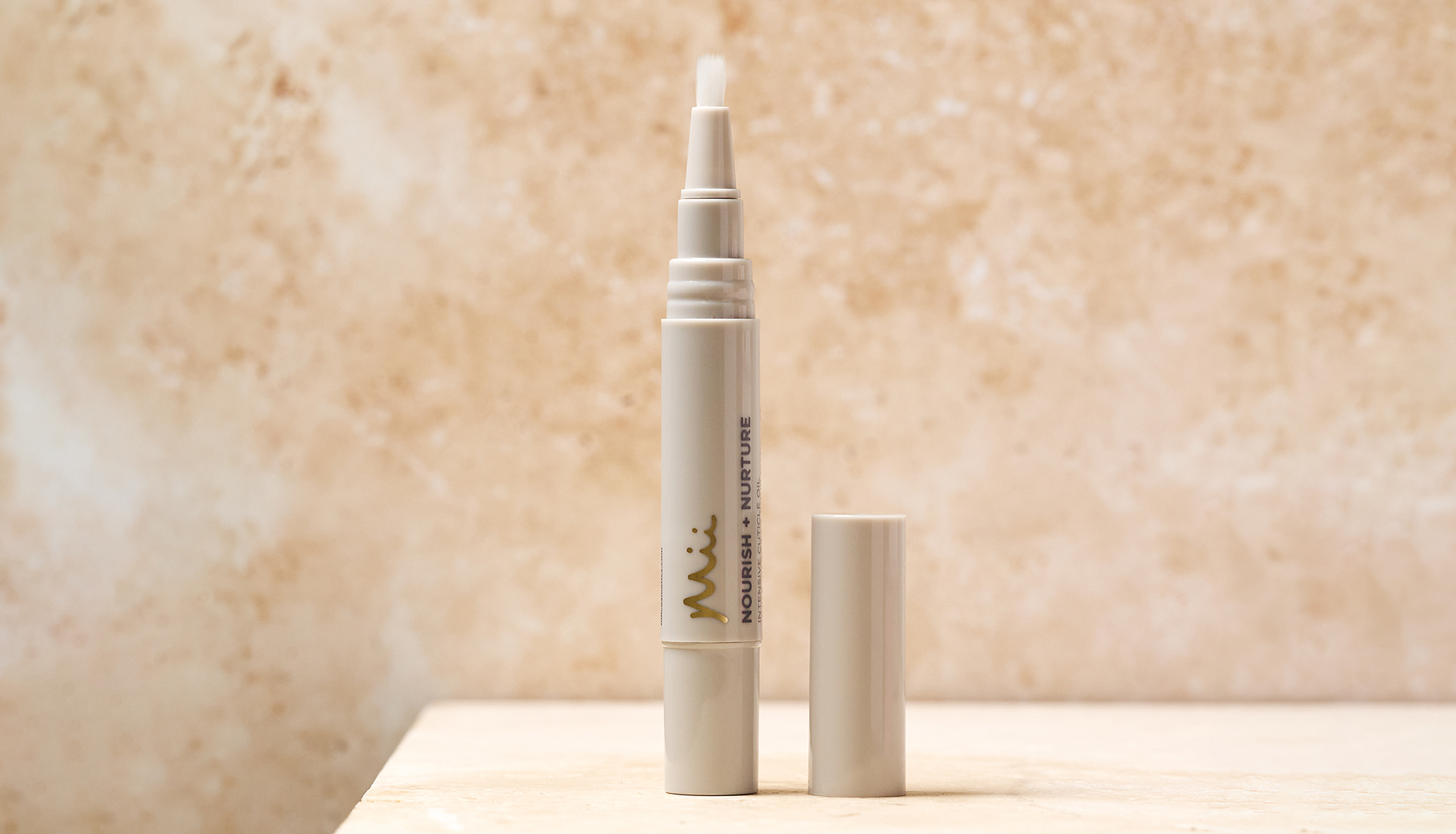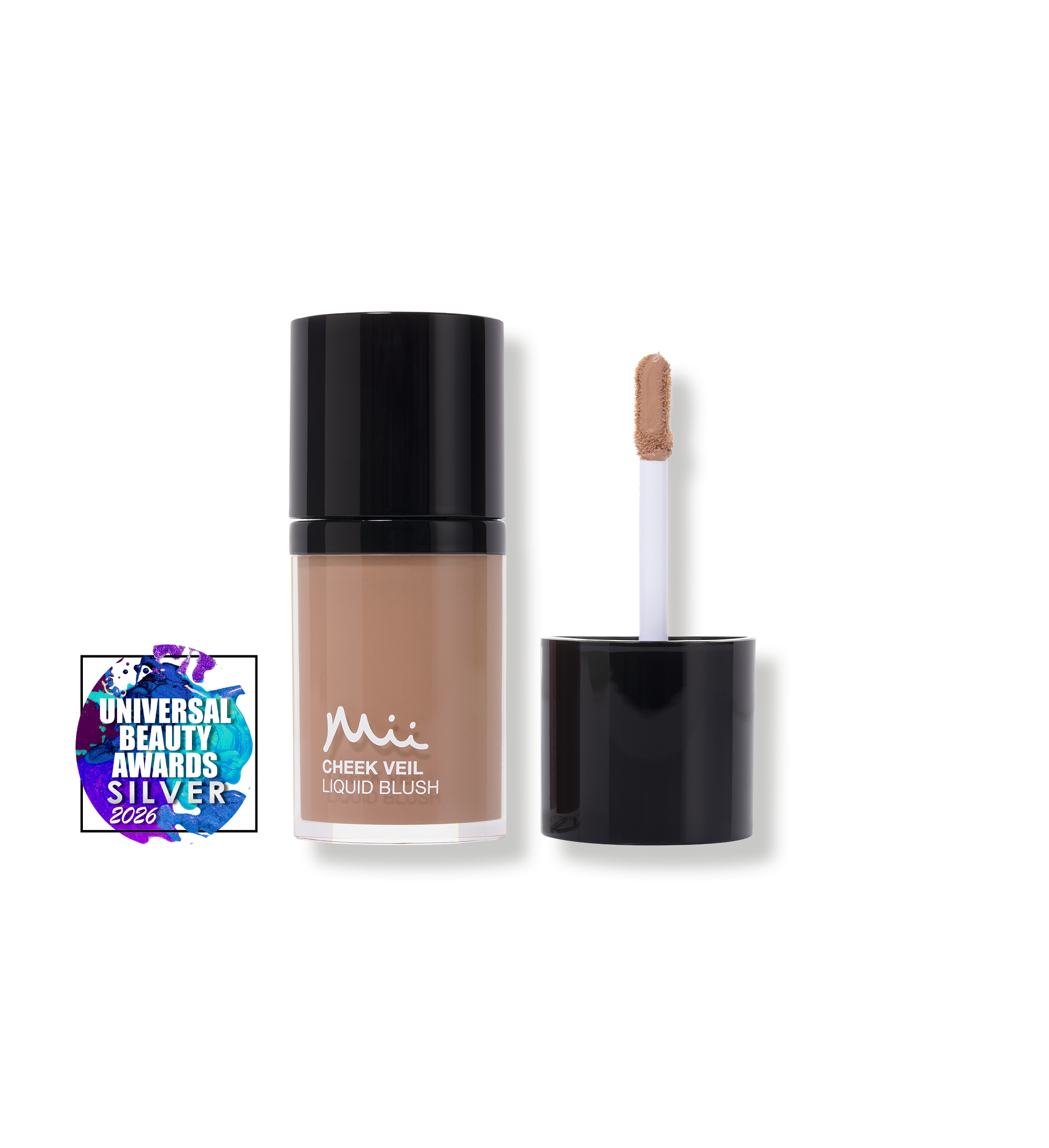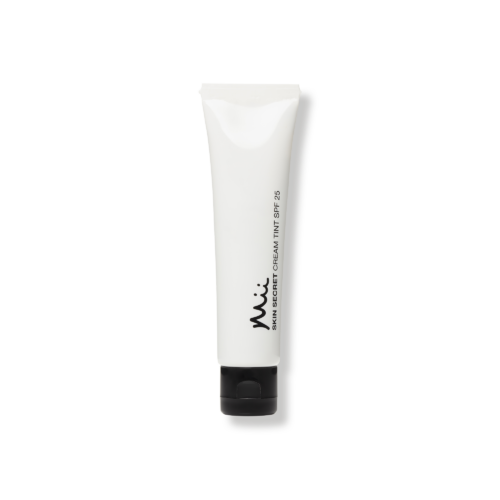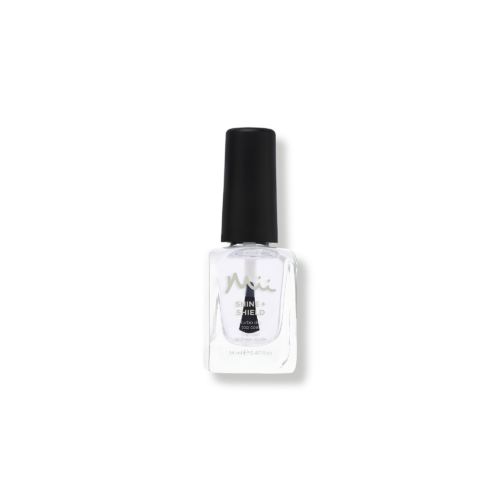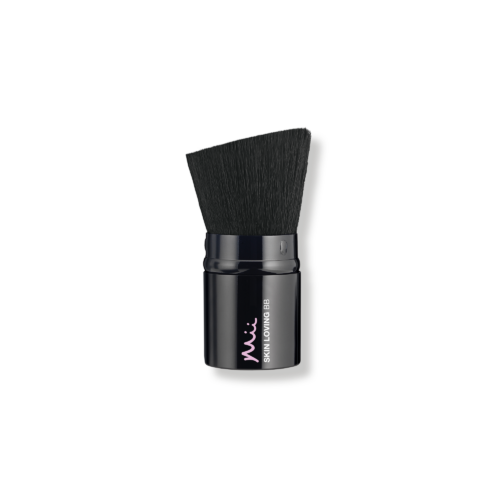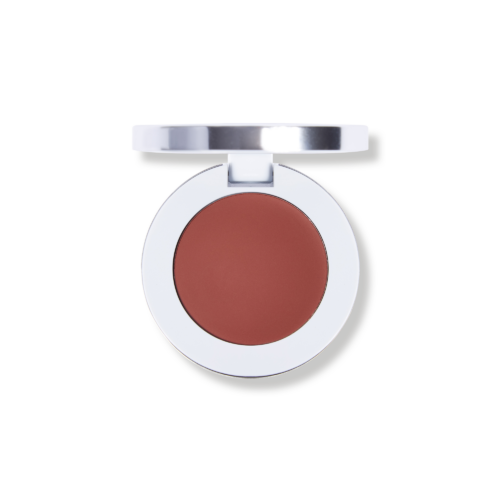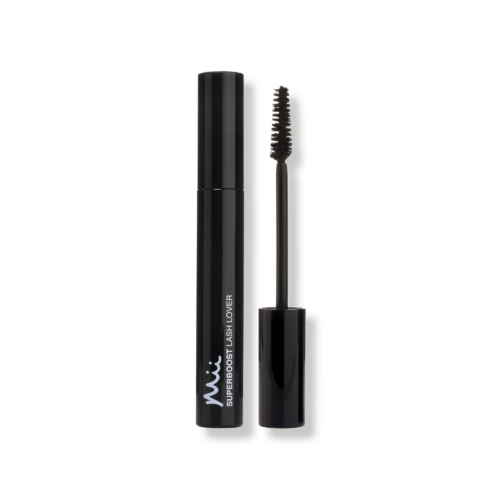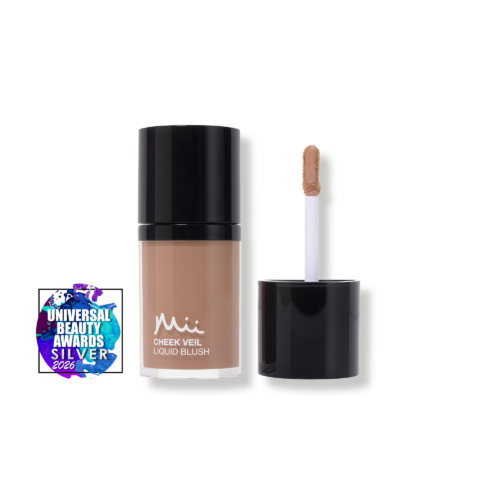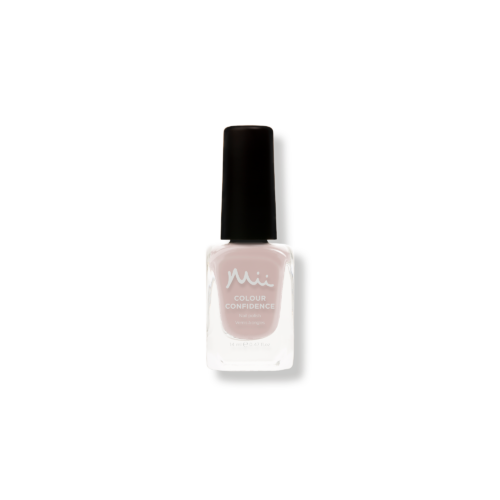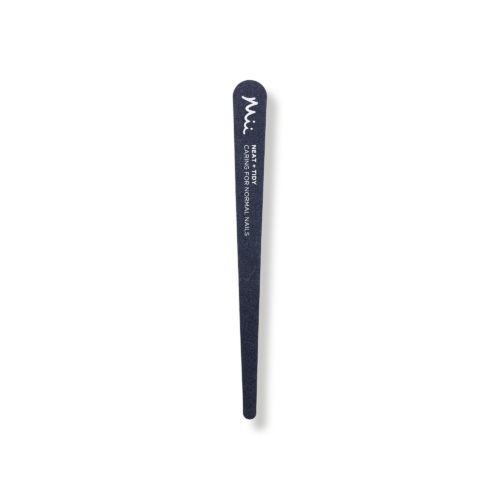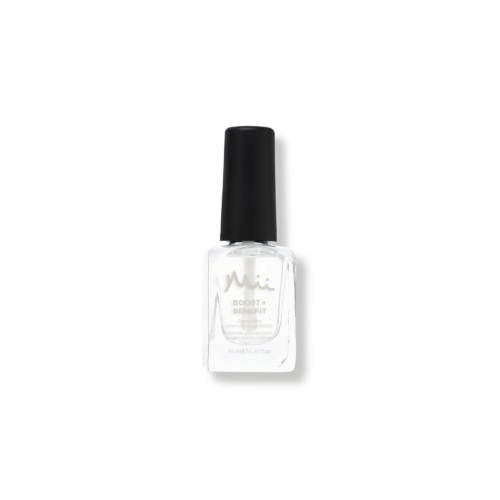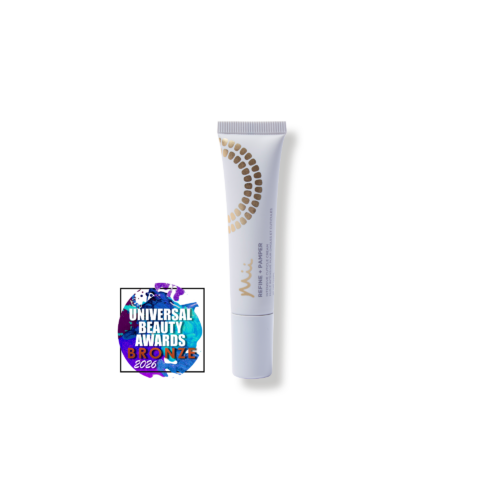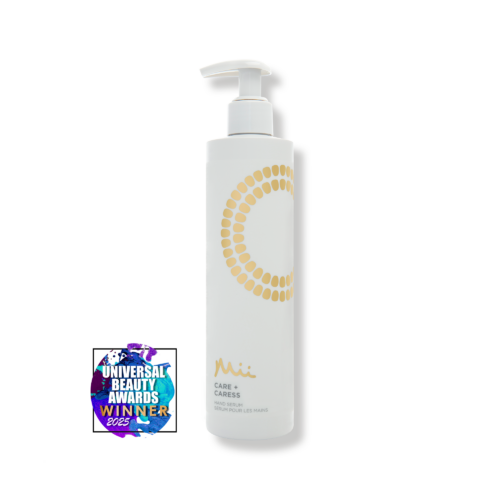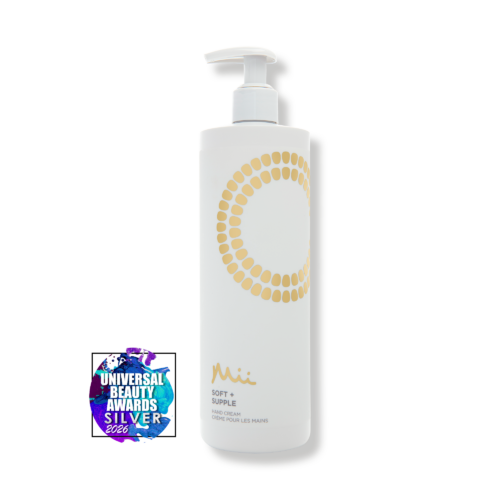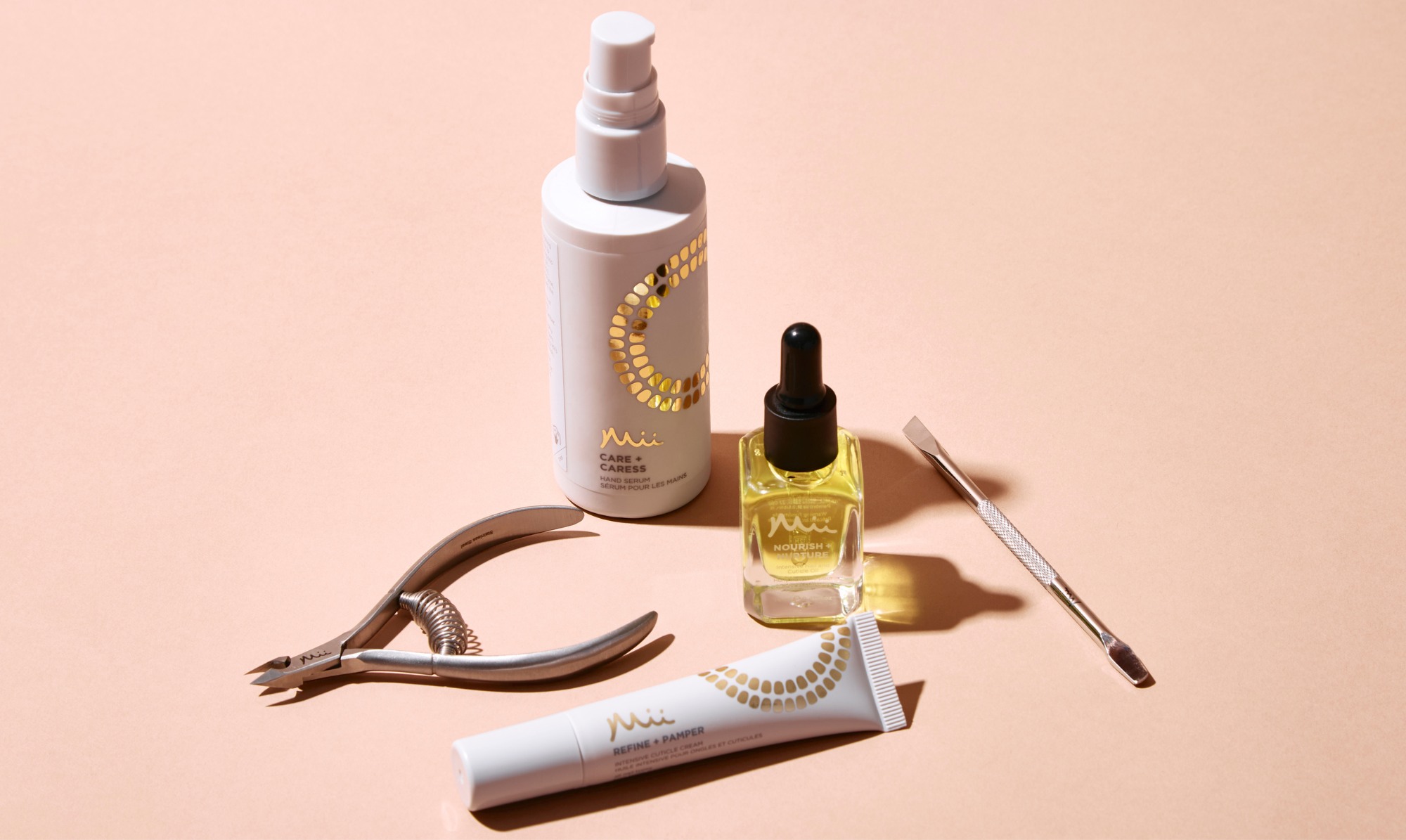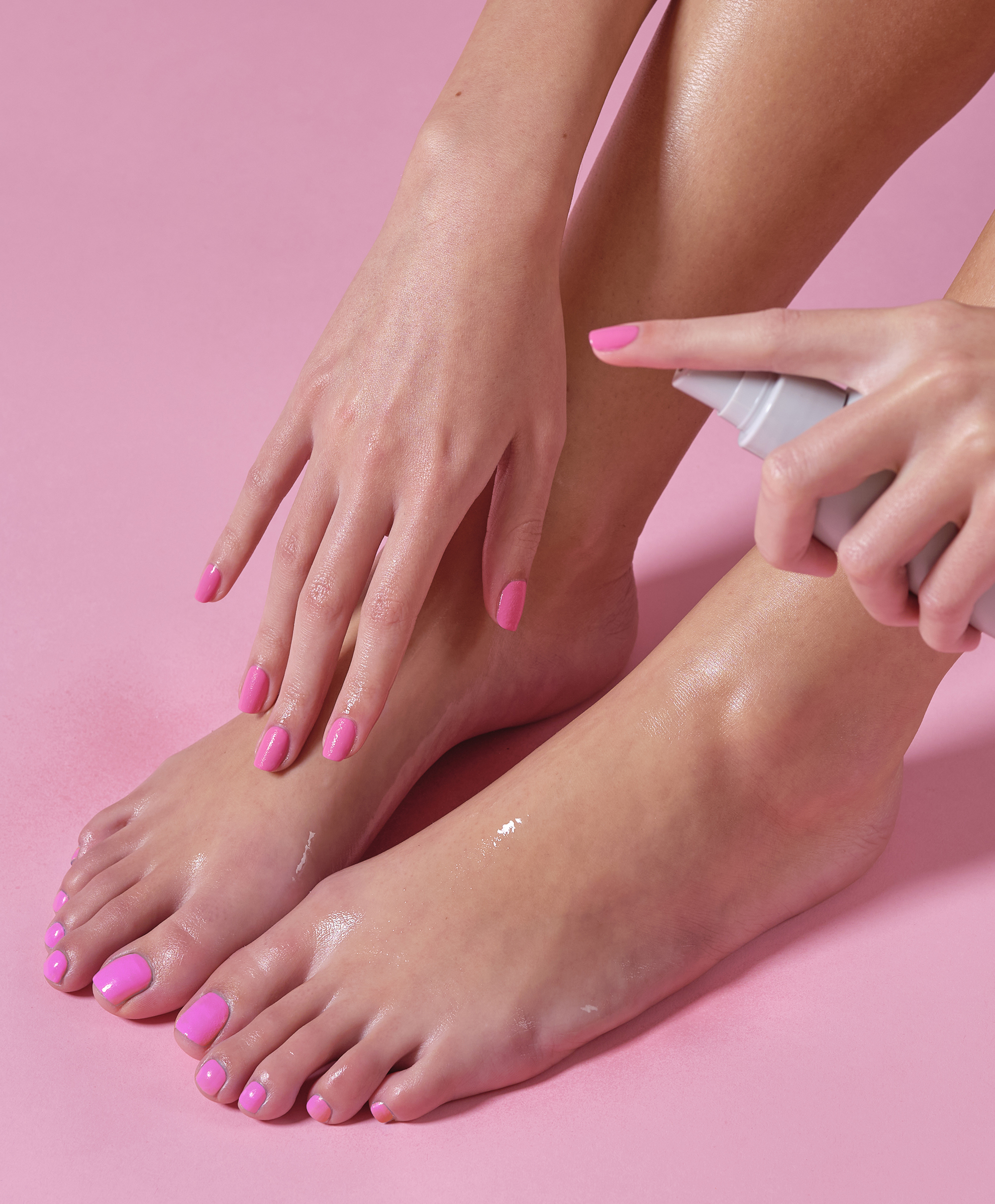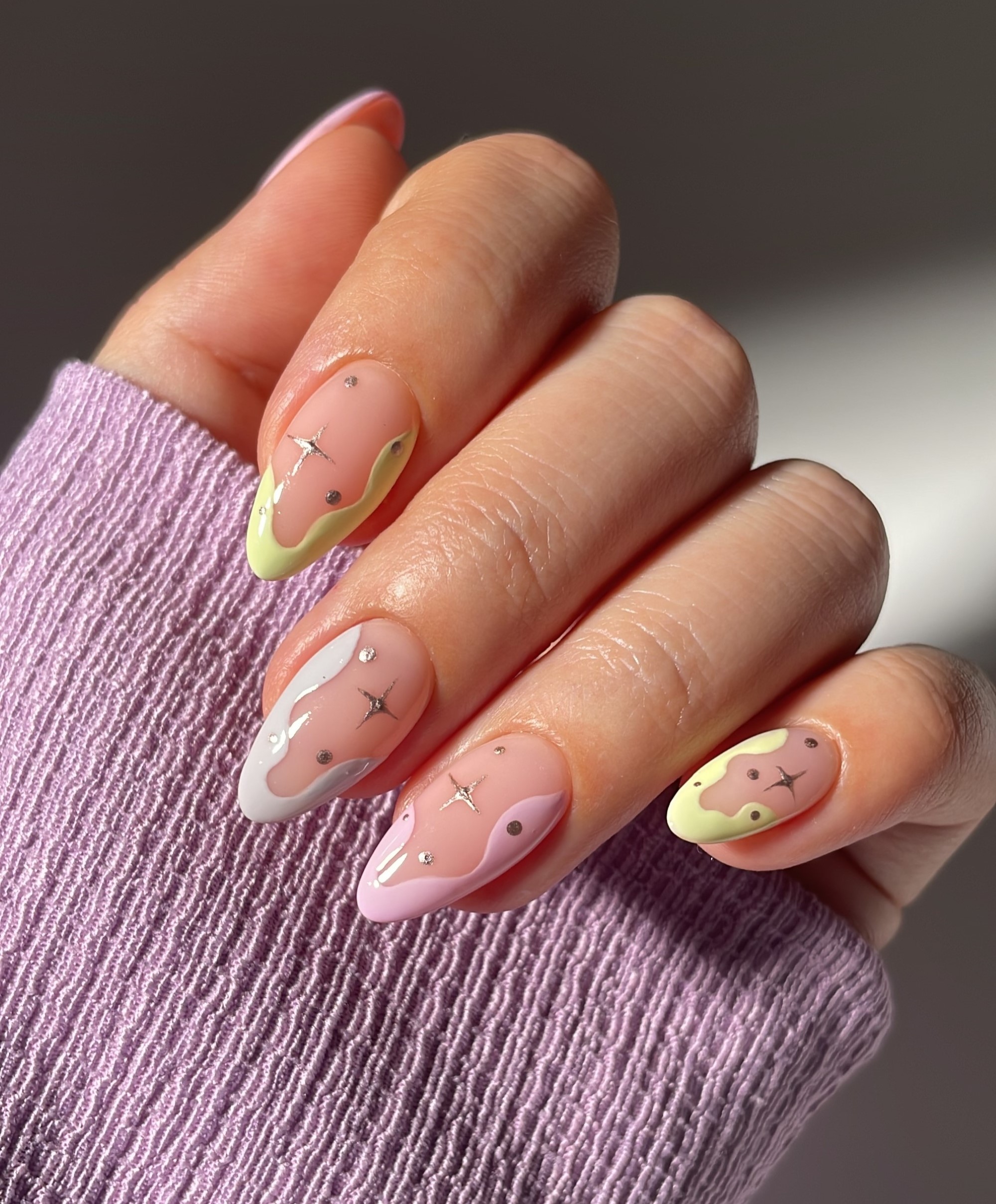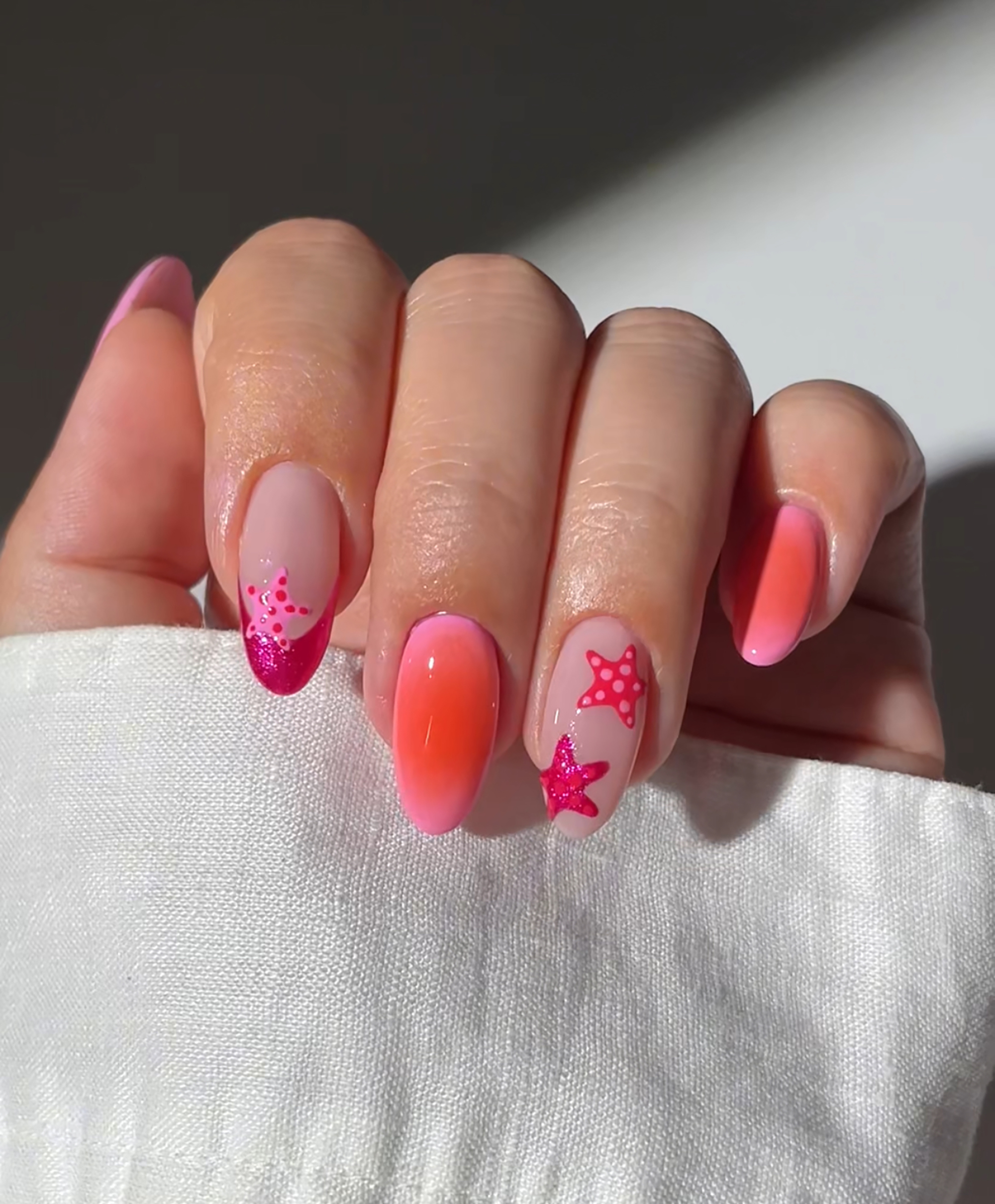NAIL CARE TIPSFOR MENOPAUSE
MENOPAUSE AND NAIL HEALTH: EXPERT GUIDE FOR STRONGER NAILS
Menopause is a natural stage of life that brings many physical changes. While much attention is given to the effects on skin and overall well-being, nails can often get overlooked. During this time, hormonal shifts can impact nail health, leading to new concerns that many women may not have experienced before. To shed light on this important topic, we asked Kirsten Desai, Head of Education at Mii Cosmetics, to share her expertise on nail changes during menopause and the best ways to support women through them.
HOW MENOPAUSE AFFECTS NAIL HEALTH
As oestrogen levels decline during menopause, the body undergoes changes that can directly affect nails. Collagen production slows down, reducing the skin and nails’ ability to retain moisture. This can leave nails feeling dry, brittle, and more prone to peeling or ridging, while overall nail growth may be slow. Higher stress levels associated with this stage of life may also further intensify these changes, leaving many women frustrated with nails that suddenly feel weaker than before.
HOW NAIL TECHNICIANS CAN HELP
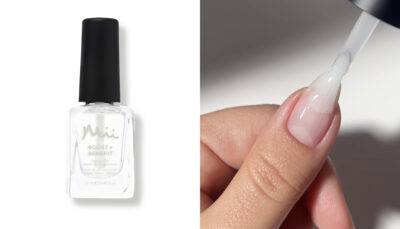
Nail professionals play a crucial role in helping clients to manage these changes with care, empathy, and expertise. Treatments should be tailored to the needs of more mature nails, emphasising gentle preparation and the application of strengthening, protective base coats. Products such as our Boost + Benefit Base Coat are ideal for weak or damaged nails, helping to strengthen, reinforce, and revitalise nails while creating a smooth base for polish. Ultra-hydrating cuticle oils, creams, and nourishing hand care products are also essential to promote overall nail and skin health. Alongside treatments, professionals can provide practical home care advice and recommend products that support nail health between appointments. Just as important is listening with empathy and offering reassurance — a nail appointment can often provide emotional support as much as it delivers a beauty treatment.
TOP TIPS FOR STRONGER, HEALTHIER NAILS DURING MENOPAUSE
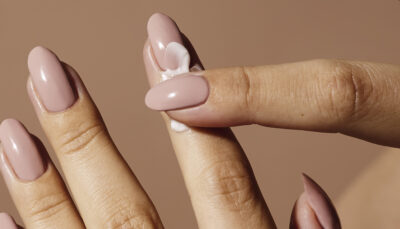
Kirsten recommends keeping nail care consistent, as small daily habits can make a big difference.
1. HYDRATE CUTICLES
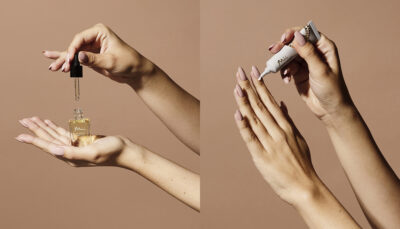
Our Nourish + Nurture Nail and Cuticle Oil absorbs quickly for lightweight hydration, while the richer Refine + Pamper Cuticle Cream offers deep conditioning. Apply one in the evening, massaging into the cuticles to support healthier growth. Both treatments also work well on any other dry patches of skin such as hands, elbows, or knees.
2. CHOOSE THE RIGHT BASE COAT
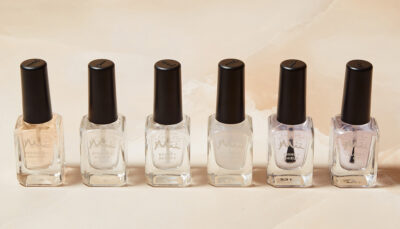
Select a prescriptive base coat that suits your nail type. Our bases are specially formulated to protect, repair, and strengthen nails while promoting healthy growth.
- To Have + To Hold – Ideal for normal nails, providing protection, hydration, and conditioning to maintain nail health.
- Boost + Benefit – Designed for weak or damaged nails, offering hydration, reinforcement, protection, and strengthening.
- Strong + Stable – Perfect for thin or peeling nails, helping to repair, reinforce, and strengthen for resilience.
- Preserve + Protect – Created for brittle nails, conditioning and fortifying them while providing long-lasting protection.
3. LAYER HYDRATION FOR HANDS
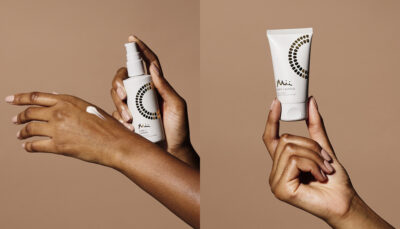
Hydration is as important for hands as it is for nails. Layer a lightweight serum, such as Care + Caress Hand Serum, with a richer cream like Soft + Supple Hand Cream to restore softness, improve firmness, and prevent dryness. For best results, apply the serum first on clean hands to penetrate deeply, then follow with the cream to lock in moisture. Repeat this routine morning and evening, and consider an extra layer after washing your hands or exposure to harsh conditions like cold weather or frequent sanitizing. This will help your hands stay nourished and resilient throughout the day.
4. FILE WITH CARE
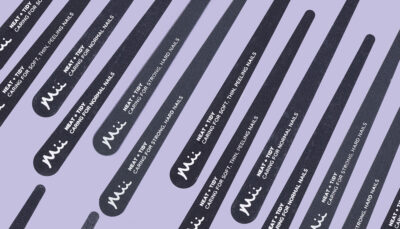
When filing nails, use an emery board designed for your nail type, such as our Neat + Tidy Emery Board for Soft, Thin, Peeling Nails. Ensure you file in a single direction from the outer edge toward the centre and avoid using a back and forth motion that can further weaken nails and cause splitting. Finish by smoothing edges to minimise the risk of damage.
5. PROTECT YOUR HANDS
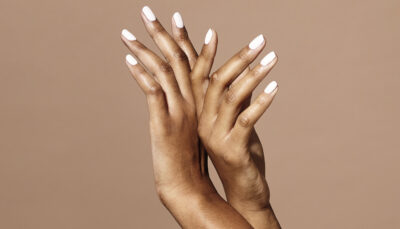
When nails are more prone to dryness and fragility, it is especially important to protect them. Always wear gloves for household chores, such as washing dishes or cleaning, to shield nails from any harsh chemicals and excess water. In colder weather, keep your hands covered with warm gloves to prevent dehydration caused by low humidity and protect nails from becoming brittle and breakable.
